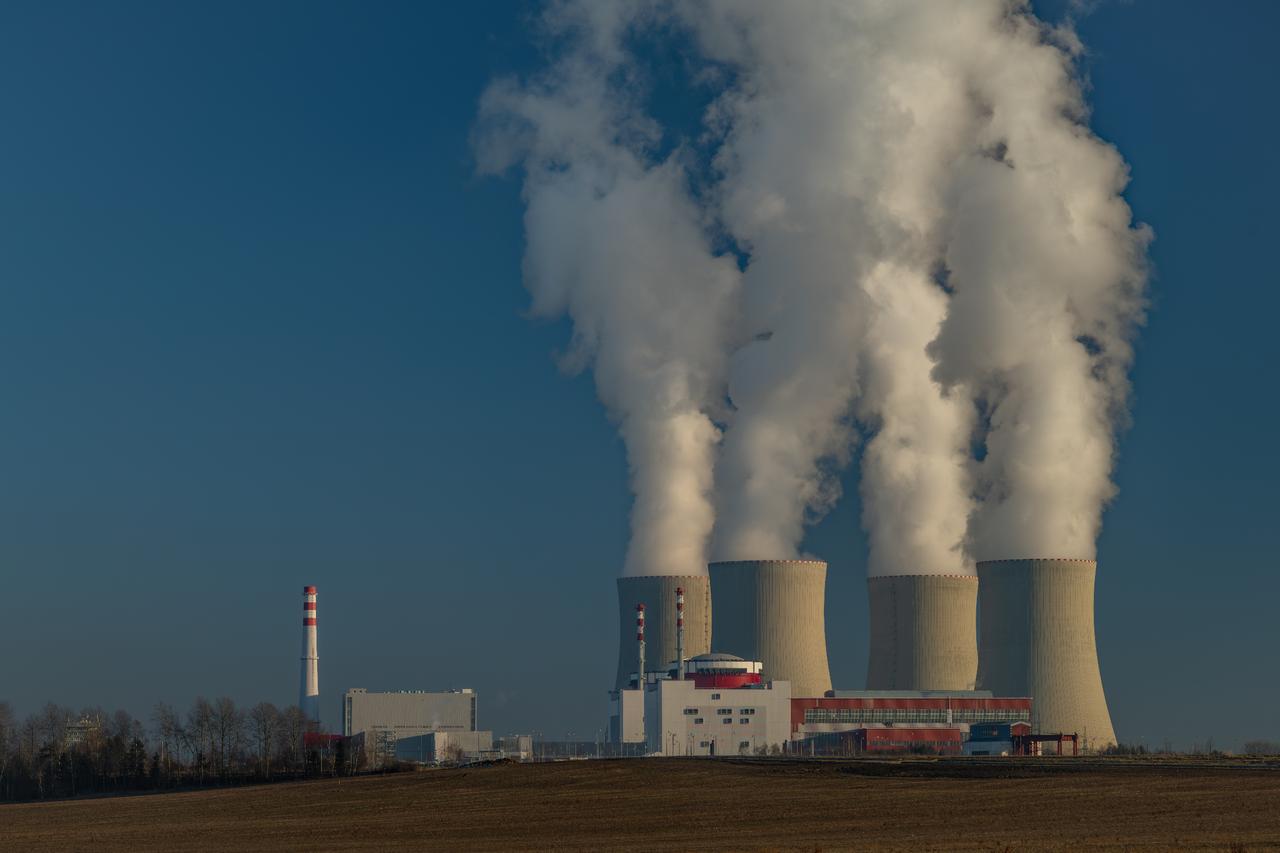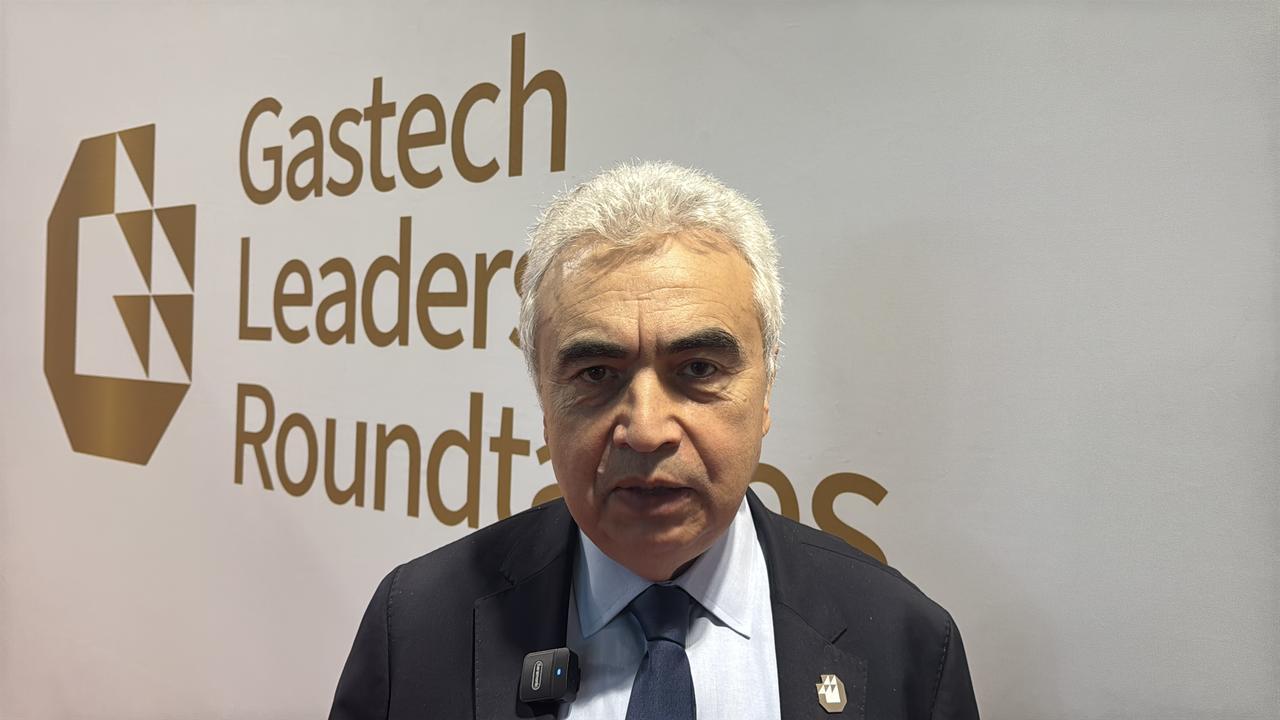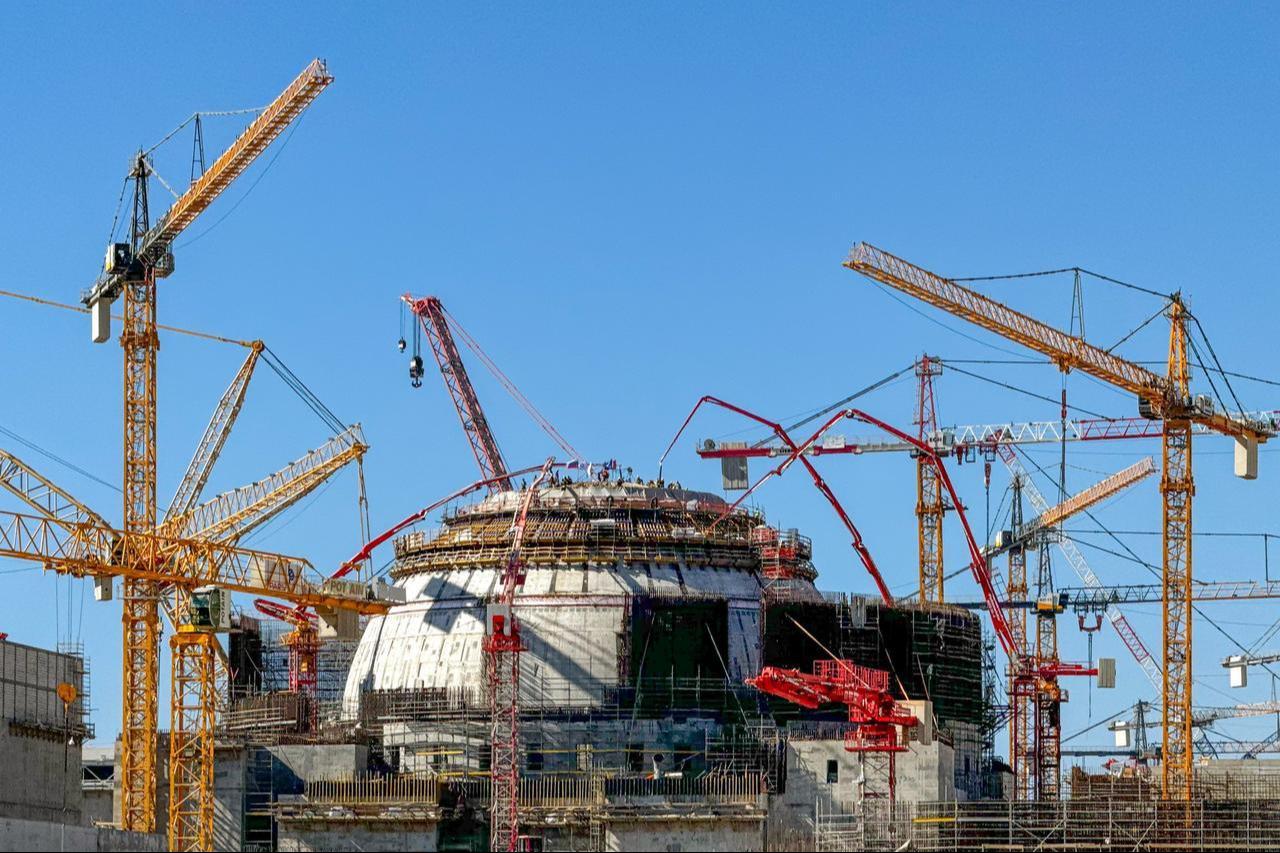
Nuclear energy is "indispensable" for Türkiye's future energy security, International Energy Agency (IEA) Executive Director Fatih Birol said, as the country aims to develop at least 20,000 megawatts (MW) of nuclear capacity to meet rapidly growing electricity demand.
"We have a lot of renewable energy, we can use it even more, but as I always say, I think nuclear energy is an indispensable technology for Türkiye," Birol told state-run Anadolu Agency (AA) on Wednesday at the Gastech 2025 Forum in Milan.
His comments come as Energy Minister Alparslan Bayraktar outlined ambitious nuclear targets at a Teknofest event in Istanbul on Saturday, calling nuclear energy an "inseparable part" of national security.

Birol emphasized that Türkiye's importance in the global energy equation has increased following recent geopolitical developments.
"Türkiye being in the same region as many oil and natural gas producers, taking and planning to take important steps with them regarding infrastructure, has strengthened Türkiye's hand in becoming an important supplier," he said.
The IEA chief noted that steps in natural gas, renewable energy, and hopefully nuclear energy will further strengthen Türkiye's position, though the country currently imports most of its oil and natural gas.
Minister Bayraktar highlighted Türkiye's progress in its 70-year nuclear energy journey, particularly over the past 15 years.
"Türkiye has made very significant progress in its approximately 70-year nuclear energy journey, especially in the last 15 years since 2010," Bayraktar said at the Istanbul event.
He pointed to the Akkuyu Nuclear Power Plant (NPP) project and the education program sending Turkish students to Russia and other countries for undergraduate, graduate, and doctoral studies as opening "an important era" in Türkiye's nuclear development.
Bayraktar detailed specific nuclear capacity goals, stating Türkiye needs at least 15,000 MW of conventional nuclear power.
"We need to have at least 12 large and small nuclear reactors in Akkuyu, Sinop, and Thrace," he said.
Additionally, the country targets at least 5,000 MW from small modular reactors (SMRs), with hopes to exceed this figure. Bayraktar emphasized the importance of localizing SMR technology for domestic production.

Both officials stressed Türkiye's rapidly increasing electricity consumption as a driver for nuclear development.
"Türkiye's electricity usage is increasing very rapidly and will continue to increase. This shows that Türkiye is modernizing, its economy is growing, and the country is urbanizing," Birol noted.
Bayraktar provided specific projections, stating electricity demand is expected to grow at an average of 3.5% annually through 2035.
"When you look at the 2035-2055 period, we forecast growth above 5% every year, and we will enter with approximately 1,050 terawatt-hours of growth," he said.
The energy minister also highlighted the economic burden of energy imports, noting that Ankara spends $70 billion to $90 billion annually on energy imports.
"Unfortunately, we import two out of three units of primary energy we use. This is becoming one of the most important dilemmas in our economy," Bayraktar said.
He stressed the connection between energy and economic independence: "I believe when we make Türkiye energy independent, we will have achieved our economic independence. This is an inseparable part of our national security."
Birol encouraged Türkiye to diversify its nuclear partnerships beyond the current Russian-built Akkuyu plant.
"I think it's very important for Türkiye to build new nuclear plants by diversifying with other countries, both conventional nuclear plants and small modular reactors. This will increase both Türkiye's energy independence and its weight in the region and the world," the IEA chief said.
Addressing decarbonization goals, Bayraktar emphasized the importance of cleaner sources in combating global warming and climate change.
"We don't have any more emission budget to release into the atmosphere. There's a major trend here related to renewable sources, energy efficiency, and obtaining our energy with less or no carbon," he said.
The minister noted that a global declaration made in Dubai in 2023 by developed nations aims to triple current nuclear power by 2050. Bayraktar also addressed global electricity trends, particularly the impact of artificial intelligence on demand.
"I can say that there are still conservative estimates for artificial intelligence, but in the 2030s, approximately 945 terawatt-hours of additional power, electricity are required. In other words, to meet the world's AI-driven electricity demand alone, we need to build another France, another Germany by 2030," he concluded.